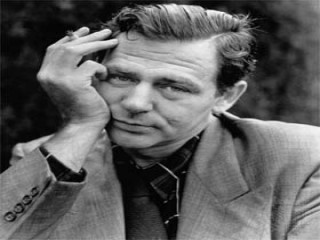
James Agee biography
Date of birth : 1909-11-27
Date of death : 1955-05-16
Birthplace : Knoxville, Tennessee, U.S.
Nationality : American
Category : Famous Figures
Last modified : 2011-05-10
Credited as : Author and poet, playwright, A Death in the Family
2 votes so far
CAREER:
After graduation, Agee moved to New York, where he wrote for Fortune and Time magazines, although he is better known for his later film criticism in The Nation. In 1934, he published his only volume of poetry, Permit Me Voyage, with a foreword by Archibald MacLeish.
In the summer of 1936, during the Great Depression, Agee spent eight weeks on assignment for Fortune with photographer Walker Evans, living among sharecroppers in Alabama. While Fortune did not publish his article, Agee turned the material into a book entitled, Let Us Now Praise Famous Men (1941). It sold only 600 copies before being remaindered. Agee left Fortune in 1939.
In 1942, Agee became the film critic for Time; at one point, he also reviewed up to six books per week. Together, he and friend Whittaker Chambers ran "the back of the book" for Time.
He left to become film critic for The Nation.
In 1948, Agee quit both magazines to become a freelance writer. One of his assignments was a well-received article for Life Magazine about the great silent movie comedians Charles Chaplin, Buster Keaton, Harold Lloyd and Harry Langdon. The article has been credited for reviving Keaton's career. As a freelancer in the 1950s, Agee continued to write magazine articles while working on movie scripts, often with photographer Helen Levitt.
Agee was an ardent champion of Charlie Chaplin's then unpopular film Monsieur Verdoux (1947), since recognized as a film classic. He was also a great admirer of Laurence Olivier's Henry V and Hamlet, especially Henry V. He published three separate reviews of the movie, all of which have been printed in the collection Agee on Film.
Agee's career as a movie scriptwriter was curtailed by his alcoholism. Nevertheless he is one of the credited screenwriters on two of the most respected films of the 1950s: The African Queen (1951) and The Night of the Hunter (1955).
His contribution to Hunter is shrouded in controversy. Some critics have claimed the published script was written by the film's director Charles Laughton. Reports that Agee's screenplay for Hunter was incoherent have been proved false by the 2004 discovery of his first draft, which although 293 pages in length, is scene for scene the film which Laughton directed. While not yet published, the first draft has been read by scholars, most notably Professor Jeffrey Couchman of Columbia University. He credited Agee in the essay, "Credit Where Credit Is Due." Also false were reports that Agee was fired from the film. Laughton renewed Agee's contract and directed him to cut the script in half, which Agee did. Later, apparently at Robert Mitchum's request, Agee visited the set to settle a dispute between the star and Laughton. Letters and documents located in the archive of Agee's agent Paul Kohner bear this out; they were documented by Laughton's biographer Simon Callow, whose BFI book about The Night of the Hunter set this part of the record straight.
In 2008, Jeffrey Couchman published The Night of the Hunter: A Biography of a Film.
Author of books:
Permit Me Voyage (1934, poetry)
Let Us Now Praise Famous Men (1941, with photographer Walker Evans)
The Quiet One (1949)
The Morning Watch (1951, novella)
A Death in the Family (1957, novel)
Agee on Film (1958)
Four Early Stories by James Agee (1964, short stories, posthumous)
The Collected Short Prose of James Agee (1968, essays, posthumous)
















